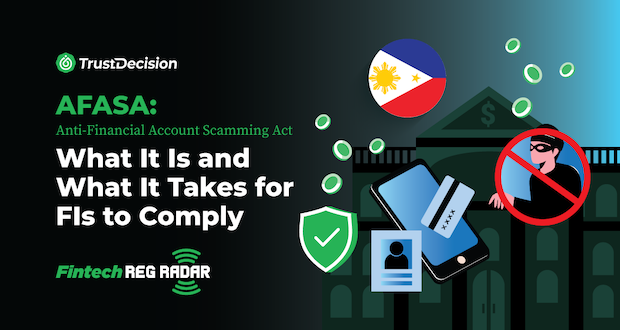Understanding the Risks
Fake accounts can lead to financial loss, compromised personal data, and damage to trust and reputation. Whether it's through phishing scams or fraudulent transactions, businesses and consumers are at risk of falling victim to these deceptive practices. Understanding the various ways in which fake accounts can impact both individuals and organizations is essential in developing effective strategies for prevention and mitigation.
Identifying Suspicious Activity
Recognizing the signs of fake account creation is key to staying one step ahead of cybercriminals. Unusual usernames, email addresses, abnormal behavior patterns, and inconsistencies in profile information are all red flags that indicate potential fraudulent activity. By being vigilant and proactive in identifying suspicious behavior, businesses can minimize the impact of fake accounts on their operations.
Staying Ahead of the Game
As technology continues to evolve, so do the tools and techniques used by criminals to create fake accounts. Staying ahead of the game means leveraging innovative technologies such as AI-powered verification systems and multi-factor authentication. By adopting advanced solutions like TrustDecision's AI-driven decision-intelligence platform, organizations can significantly enhance their fraud prevention measures and protect their customers from fake accounts. AI sets a new standard in fraud detection compared to traditional systems. Traditionally, organizations depend on manual verification processes, rule-based systems, and static checks to spot fraudulent activities. However, these methods can be slow, labor-intensive, and easily circumvented by sophisticated fraudsters. On the contrary, AI-driven solutions like TrustDecision's platform offer speed, scalability, and adaptability. These solutions make use of intricate algorithms to analyze large volumes of data, identifying patterns indicative of fraudulent activity. Therefore, incorporating AI not only streamlines the fraud detection process but also makes it far more effective in securing businesses against the risks of fraud and fake accounts.
Recognizing Fake Account Creation
In the ever-evolving landscape of online fraud, recognizing fake account creation is crucial to maintaining security and trust. TrustDecision, established in 2018 in Singapore, operates across 5 countries and serves clients in over 20 countries, extending its reach to end-customers in over 150 countries with AI-driven decision intelligence solutions.
Anomalous Activity Patterns
One key indicator of potential fake account creation is anomalous activity patterns. This includes the rapid succession of actions that are unlikely to be humanly possible. For instance, an individual creating multiple accounts within a short timeframe or engaging in a flurry of activity without logical breaks may raise suspicion. Additionally, unusual browsing patterns, such as skipping crucial steps in the shopping or checkout process, can signal fraudulent behavior.
Suspicious Account Details
Another red flag to watch out for is suspicious account details. This can manifest in various ways, such as the use of temporary or disposable email addresses. Multiple accounts registered under the same IP address or utilizing similar email patterns may also indicate fraudulent activity. Furthermore, inconsistencies or fraudulent information in account profiles, such as mismatched personal details or suspicious contact information, should be closely scrutinized.
Abnormal Purchase Behavior
Abnormal purchase behavior is often indicative of fake account activity. This includes a high volume of transactions occurring within a short period, which may suggest automated or coordinated efforts to exploit vulnerabilities. Additionally, orders placed using multiple payment methods or cards linked to different names can raise suspicion. Moreover, frequent changes to account details, especially before making transactions, may be a tactic used to evade detection.
Engagement with Products and Services
Monitoring engagement with products and services is essential in identifying potential fake accounts. One common indicator is the presence of generic, irrelevant, or highly repetitive reviews and comments. Fake accounts may also attempt to exploit return policies by making excessive returns or refund requests, indicating fraudulent intent.
Social Engineering Indicators
Lastly, social engineering indicators can provide insights into fake account creation. This includes accounts that primarily engage in phishing attempts or spreading malware through messages or product reviews. By identifying and flagging such accounts, businesses can mitigate the risks associated with social engineering attacks and protect their customers from falling victim to malicious activities.
In conclusion, recognizing fake account creation requires vigilance and a comprehensive understanding of the various indicators outlined above. By leveraging advanced AI-driven solutions like TrustDecision's decision-intelligence platform, businesses can enhance their fraud prevention measures and safeguard their online ecosystems against fraudulent activities.
Technologies and Tools to Combat Fake Accounts
Machine Learning and Artificial Intelligence
With businesses increasingly turning to digital platforms, the need to combat fake accounts has never been more important. Machine learning (ML) and artificial intelligence (AI) are two powerful technologies often utilized for such purposes. For instance, TrustDecision appropriately employs ML algorithms to scrutinize user behaviors, assessing patterns such as action frequency, navigation, and interactions that might suggest a fake account. Furthermore, AI-driven decision intelligence solutions can detect anomalies or deviations from standard user behavior that could flag potential fraudulent accounts.
Device Fingerprinting
In conjunction with ML and AI, device fingerprinting is highly effective in combatting fake account creation. This technique gathers data about a device's configuration, IP address, and browser settings to track suspicious activities. Unique to each device, this digital 'fingerprint' helps to recognize when multiple accounts have originated from the same device, suggesting a possible fraudulent agenda.
Data Analytics and Big Data
Data analytics and big data tools also play a crucial role in combating fake accounts. Predictive analytics can analyze historical data to forecast possible fraudulent activities, enabling platforms to anticipate and counter potential threats. Cross-referencing large datasets can identify connections, trends, and patterns among various accounts and transactions, hinting at coordinated fraudulent behavior.
Network Analysis
Network analysis, including social network analysis (SNA) and knowledge graphs, helps expose networks of fake accounts. SNA scrutinizes relationships and interactions between accounts, identifying clusters used for coordinated campaigns or fraud. Knowledge graphs map connections between entities such as devices, accounts, and IP addresses, aiding in the detection of complex fraud schemes involving multiple fake accounts.
Multi-Factor Authentication (MFA) and Verification Processes
MFA and verification processes present another robust line of defense against fake accounts. Requiring users to provide two or more verification factors reduces the risk of account takeover significantly. Advanced verification processes such as document verification and biometric analysis ensure new accounts are authentically associated with real individuals.
CAPTCHA and Advanced Human Validation Techniques
CAPTCHA tests and advanced human validation techniques differentiate humans from bots during account creation or login processes. Further, sophisticated tests involving puzzle-solving or interactive challenges based on machine learning are becoming increasingly prevalent.
Threat Intelligence Platforms
Threat intelligence platforms utilize global databases tracking known fraud indicators, including device fingerprints and IP addresses associated with fraudulent activities. These platforms provide real-time alerts about emerging threats, allowing rapid adaptation of defenses.
Fraud Detection and Management Software
Comprehensive fraud detection and management software integrates several of the previously mentioned technologies, providing a unified solution for detecting, managing, and reporting fraudulent activities. These platforms often include customizable rules engines, case management tools, and reporting dashboards, optimized to combat fake account proliferation effectively. TrustDecision, for example, is a key player in the field, serving clients across the globe with their robust AI-driven decision-intelligence solutions.
Impact on Businesses and Consumers
Financial Loss and Fraudulent Transactions
Fake accounts pose a significant threat to businesses and consumers, leading to financial loss and fraudulent transactions. With the rise of fake bank account generators and fake accounts on social media platforms like Instagram and Facebook, businesses are at risk of falling victim to scams and unauthorized transactions. This can result in substantial monetary losses for companies, as well as individual consumers who may unknowingly engage with fraudulent accounts.
Compromised Personal Data
In addition to financial implications, fake accounts also compromise personal data. Whether it's through a fake bank account or a username linked to a fraudulent profile, individuals are at risk of having their sensitive information exposed. This can lead to identity theft, unauthorized access to personal accounts, and other forms of cybercrime that have long-lasting repercussions for affected individuals.
Trust and Reputation Damage
The presence of fake accounts can tarnish the trust and reputation of businesses and individuals alike. For companies, being associated with fraudulent activity can damage their credibility in the eyes of consumers, leading to a loss of trust that is challenging to regain. Similarly, individuals who fall victim to fake account scams may experience reputational harm within their social circles or professional networks.
Legal and Ethical Implications
As the prevalence of fake accounts continues to rise, data privacy regulations are becoming increasingly stringent to protect users from potential harm. Companies must adhere to strict guidelines regarding the collection, storage, and use of personal data to prevent the creation of fake accounts and ensure user privacy.
Data Privacy Regulations
Data privacy regulations such as GDPR and CCPA mandate that companies obtain explicit consent from users before collecting their personal information. This helps in preventing the misuse of data for creating fake accounts and protects individuals from potential identity theft or fraudulent activities.
In addition to obtaining explicit consent, data privacy regulations also require companies to be transparent about how they use and store personal information. This transparency helps users make informed decisions about sharing their data and allows them to understand the potential risks involved. By promoting transparency, these regulations aim to build trust between companies and their users, ultimately leading to a more secure and ethical digital environment.
User Consent and Transparency
Obtaining user consent and being transparent about the purpose of data collection are essential in combating the creation of fake accounts. Users should be informed about how their information will be used, giving them the opportunity to make an informed decision about sharing their personal data.
In addition to obtaining user consent and being transparent about data collection, it is important for companies to be accountable and responsible for how they use the information they gather. This means implementing strong security measures to protect user data from unauthorized access or misuse. By taking responsibility for safeguarding user information, companies can build trust with their users and create a safer online environment.
Accountability and Responsibility
Businesses have a responsibility to protect user data from being used to create fake accounts that can lead to financial loss or reputational damage. They must be held accountable for implementing robust security measures and ensuring that user information is not exploited for fraudulent activities.
Businesses must also prioritize transparency when it comes to how they handle user data. This means clearly communicating with customers about the measures in place to protect their information and being open about any potential security breaches. By being transparent, businesses can build trust with their users and demonstrate their commitment to accountability and responsibility in safeguarding sensitive data.
Collaborating with TrustDecision
TrustDecision presents cutting-edge AI-driven decision-intelligence solutions tailored to combat the rising threat of fake accounts. By harnessing advanced algorithms and machine learning, TrustDecision's technology efficiently identifies and flags suspicious activities linked to fake account creation, furnishing businesses and consumers with robust defense mechanisms against fraudulent behavior.
AI-Driven Fraud Prevention by Experienced Domain Experts
TrustDecision's comprehensive anti-fraud solutions are facilitated by a dedicated team of experienced experts trained in deploying AI-driven technologies to mitigate the escalating threat of fake accounts. Our solution team designs strategies that encompass the end-to-end customer journey, formulating tailored solutions based on the industry and its unique business concerns.
Our diversified team comprises of:
- Research & Development (R&D): Pioneers in identifying novel and upcoming threats and devising innovative technology to combat them.
- Intelligence: Experts at investigating the latest trends and tactics employed by fraud gangs in the black market.
- Strategy: Professionals who design strategies through a detailed analysis of each business, thereby providing a solution tailored to their needs.
- Operation: Ensures seamless delivery and integration of the agreed solutions, providing step by step guidance throughout the process.
Wide Coverage of Database and Global Network
TrustDecision's AI-driven decision-intelligence solutions leverage machine learning algorithms and artificial intelligence to process an expansive database of over 7 billion+ device data points and a comparable number of identity elements such as names, emails, phones, IPs, and addresses. Our technology has accurately identified fraud in over 13 billion+ transactions within the identity network.
Our systems precisely analyze user behaviors and detect anomalies, a common indicator of fraudulent account creations. Adopting technologies such as digital fingerprinting and behavioral biometrics, we deliver nuanced insights into device and user interactions, refining the process of fraud detection and providing a robust online environment for businesses and their customers.
Fully Compliant

At TrustDecision, we prioritize adhering to international security certifications and rigorous data privacy standards. Our practices include global security standard compliance across all system designs, software development, operational, and business processes.
Our robust security controls and practices ensure data privacy and protection, with all Personally Identifiable Information (PII) data storage and transmissions encrypted with industry-standard encryption. We subject ourselves to regular security audits and reviews as part of certification for various industry standards. Furthermore, we actively address our customers' security audit process, including questionnaires, security interviews, and on-site audits.
By collaborating with TrustDecision, businesses can capitalize on our AI-driven decision-intelligence solutions to tackle the rising threat of fake accounts on various online platforms. TrustDecision is dedicated to empowering businesses to create a secure online environment and educates users to recognize and avert fraudulent activities.
Conclusion
TrustDecision leads the fight against fake accounts through advanced AI-based verification systems and multi-factor authentication tools, ensuring a secure online environment for businesses and consumers. We impart knowledge on recognizing and dealing with suspicious activities, empowering users to maintain their online safety. We are at the forefront in fraud prevention, safeguarding not just businesses from financial loss, but also consumers' personal data. By teaming up with TrustDecision, businesses can boost their account verification processes and enhance their fraud prevention measures. Thus, together, we are working towards a safer digital landscape.














